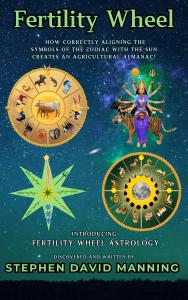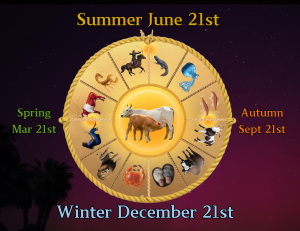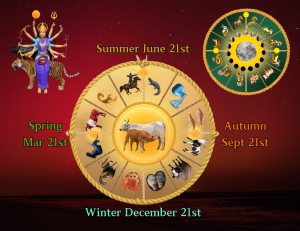A new book, “Fertility Wheel”, presents a theory that reinterprets the zodiac as an ancient agricultural guide rather than a tool for fortune-telling.
— Stephen D. Manning
EMERY, SD, UNITED STATES, August 17, 2024 /EINPresswire.com/ — In his new book, Fertility Wheel, author Stephen David Manning introduces a groundbreaking theory that redefines ancient astrology and fortune-telling, shifting the focus to practical agricultural practices instead. Ancient civilizations understood these symbols as essential for survival and prosperity, embedding them within their stories, texts, and cultural practices. Manning suggests that the zodiac functioned as a practical guide for understanding seasonal breeders, determining the optimal times to multiply livestock, plant crops like wheat, and much more. His groundbreaking theory is challenging traditional interpretations of horoscopes, while also offering a valuable lesson in fundamental farming practices. Through meticulous research and a groundbreaking realignment of the zodiac pictograms, Manning uncovers what he believes is a Perpetual Farmers Almanac—a Fertility Wheel of Earth—hidden in plain sight for millennia.
The Zodiac as a Fertility Guide: Manning’s journey began with a critical observation: the zodiac pictograms should be aligned not with the stars, as traditionally believed, but with the Sun. By correcting this alignment and adjusting the scales to the correct equinox, Manning reveals that the zodiac was originally designed as a guide for agricultural fertility. Each zodiac sign, when properly aligned, corresponds to the peak mating seasons of common farm animals, offering ancient farmers a reliable guide for optimizing agricultural and livestock production. Manning proposes that ancient civilizations misaligned the zodiac scales to the wrong equinox, leading to a profound misunderstanding of the zodiac’s true purpose.
One of the most striking revelations in the book “Fertility Wheel” is Manning’s interpretation of the Centaur, a symbol commonly associated with myth and legend. Considering basic farming and agriculture and the fact that centaurs never existed, Manning reinterprets the symbol to represent a horse and a man. Many of his friends had horses and bred them, Manning knew that horses are long-day breeders, typically mating between May 22nd and June 22nd. When he adjusted the zodiac to align with the sun, he discovered that this time frame perfectly matched the horse’s breeding season.
Similarly, the Sheep, Goat, or Deer, traditionally represented just after the fall equinox, are shown to coincide with their prime mating season in the adjusted zodiac. Manning’s insights extend even to the symbolic use of water in the zodiac, which he connects to the annual flooding of the Nile River—a crucial event for ancient Egyptian agriculture, celebrated every August 15th. This timing aligns perfectly with the new calibration, where water appears on the zodiac, symbolizing the life-giving floods that brought fertility to the land.
Uncovering the Fertility Goddess
The alignment of the zodiac pictograms also led Manning to a deeper exploration of ancient deities. In researching the earliest gods and goddesses, he researched Inanna, the Sumerian goddess of fertility, sex, childbirth, and war. Inanna’s celebration of love occurred from February to March, which corresponds to the period when the “woman” symbol appears in the newly aligned zodiac. Manning suggests that Inanna’s role as the goddess of fertility and childbirth is echoed in the zodiac, where the “woman” symbol leads to the “twins,” representing newborns nine months later.
Manning’s research explores agricultural writings and pictograms from the Fertile Crescent, China, India, and various other ancient cultures.
Bridging Cultures: The Chinese Zodiac Connection
Manning’s research extends beyond Mesopotamian astrology, drawing fascinating parallels with the Chinese zodiac. Recognizing the similarities between the animals of the Chinese and Mesopotamian zodiacs—such as the bull, horse, goat, and large cat, common seasonal breeders—His study of figures like the Yellow Emperor, Huangdi, who created the Chinese zodiac and lunar calendar using a cycle of 29.5 days based on the moon, led Manning to propose that the Chinese zodiac was also intended as an agricultural calendar.
Manning argues that the 12-year cycle commonly associated with the Chinese zodiac should instead be viewed as a 29.5-day cycle, similar to the Mesopotamian zodiac, aligning with the natural rhythms of seasonal breeders. By positioning the animals of the Chinese zodiac during their peak mating times, Manning reveals that both zodiacs share a common purpose as agricultural guides.
Stephen David Manning’s Fertility Wheel is not merely a reinterpretation of ancient symbols but a revelation of a profound agricultural message woven within the fabric of ancient civilizations. His research also touches upon the Hindu goddess Durga, where he identifies symbols representing each month’s agricultural tasks. By realigning these symbols, Manning unveils an agricultural guide that transcends cultural boundaries and connects the wisdom of ancient peoples.
The horse, the figure of a horse and man with a bow and arrow, or even just the bow and arrow—depending on the culture—consistently symbolizes the time leading up to the summer solstice.
Fertility Wheel promises to ignite debate and discussion among scholars, astrologers, and historians alike, offering a fresh perspective on the ancient world and its understanding of fertility, agriculture, and the rhythms of nature. The readers should explore the possibility that the zodiac was not just a tool for divination but a vital guide for sustaining life on Earth.
Earlier this year, a producer suggested that Manning change the book’s title to something with more flair. His response was clear: “Inanna was the goddess of fertility, water brings fertility to the land, and the zodiac reveals seasonal breeders. It had to be called the Fertility Wheel!”
When you understand basic farming practices, like the ideal times for breeding animals and other agricultural techniques, and see how these align with the zodiac’s key seasons, it becomes hard to believe the zodiac is just for fortune-telling. The evidence overwhelmingly points to it being a Farmer’s Almanac or fertility wheel.
Stephen D. Manning
Fertility Wheel LLC.
+1 605-728-1883
[email protected]
Visit us on social media:
YouTube
The horse, the figure of a horse and man with a bow and arrow, or even just the bow, consistently symbolizes the time leading up to the summer solstice.
![]()
Originally published at https://www.einpresswire.com/article/736295115/controversial-new-book-fertility-wheel-unveils-the-zodiac-s-true-purpose-a-guide-for-agriculture-and-farming






